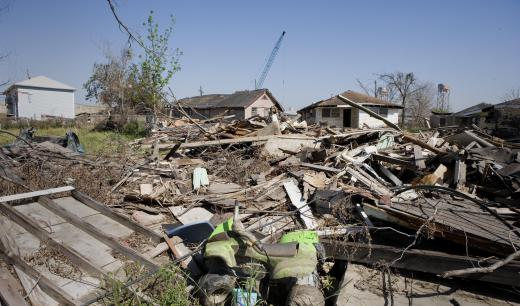A natural hazard disclosure is a document given by the seller of a real estate property to the buyer, outlining whether the property is in an area known to be prone to natural disaster, such as flooding, earthquakes, hurricanes, or tornadoes. It is designed to protect buyers from unknowingly purchasing property that might incur damages from natural disasters simply because of the property's location in a naturally hazardous area. The disclosure document is usually prepared by a third party to the transaction to prevent disclosure fraud.
In the United States, there is no federal mandate that requires sellers to provide natural hazard disclosures to buyers during a transaction. Some states have created their own disclosure regulations, however. Among these are Alaska, California, Florida, Hawaii, Idaho, and Washington — all states at high risk for varying natural hazards. Other states have no natural hazard disclosure regulations and still operate under caveat emptor, which is also known as a buyer beware sale.

California in particular has one of the most comprehensive natural hazard disclosure laws. In 1998, the state legislature created a standardized disclosure form that detailed a variety of natural hazards known to the state. Sellers are required to report information on known fire zones; seismic zones, including landslide areas; floodplains; and earthquake fault zones.

The natural hazard disclosure usually indicates whether the buyer of a real property has legal permission to develop or alter the property in any way. It might also specify whether the property falls under special insurance requirements or whether the owner has a right to federal assistance following a natural disaster. In some cases, the natural hazard disclosure may not be enough to absolve a seller's responsibility in a property. Localities that require disclosure may also specify that if a seller is aware of a natural hazard that is not present on a standardized form, he still has an obligation to report it, as well as run any special reports or obtain any relevant maps that document the hazard.
Failure to report potential disaster areas is known as natural hazard disclosure fraud. If the seller is found to have willfully withheld information about natural hazards affecting a property in order to progress a sale, he may be held liable for damages made to the property during a natural disaster. Sellers are not usually liable for mistakes or omissions on natural hazard disaster forms if the information they obtained came from a public agency or a qualified expert and was reported in good faith. The term "qualified experts" for legal real estate purposes usually includes licensed contractors, geologists, engineers, and surveyors.
